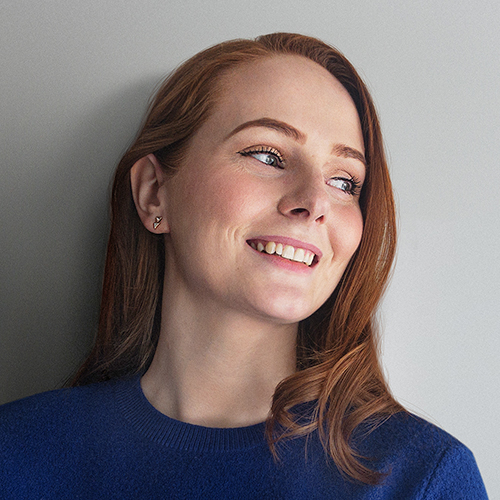Please update your browser.

Susan Binchy
Strategy Associate
Growing up on an Irish farm, some of Susan Binchy's earliest memories involve shooing her neighbors' sheep away from her family's rhubarb plants.
It's hard to imagine a childhood further removed from the bustle of the financial world, but Binchy loved economics, and hoped that she would one day get a chance to work for a big Wall Street firm. So, in her senior year of college, she decided to give it a shot: She wrote to each of the major investment banks requesting more information about their recruiting practices to better determine whether she would be a fit.
“J.P. Morgan was the first to write back," she recalls. "They encouraged me to apply, and not to doubt myself. When I got hired, I understood that there's no such thing as what they are looking for. You don't have to wake up at the age of twelve and decide to be a trader."
Four years after her initial email, Binchy still works for the firm in London.
What does success look like to you?
I think the definition of success changes as you go through different stages of your life. Right now, during the pandemic, my idea of success is being able to execute my job well while also being mindful of my stress. That means making sure I take a walk every day, and experiencing my job as a necessary outlet for channeling some of my creative energy and as an opportunity for mindful exercise that keeps me focused on problems I can help to solve.
Who has been the biggest influence in your life?
This question reminds me of a TV show I am watching called “This is Us." In it, one of the characters gets asked this same question. He immediately rejects the premise, pointing out that we have numerous interactions and chains of events in our lives that can impact us in so many ways.
For instance, I had incredible teachers who allowed me to go off on tangents, or who encouraged me to study economics, which I love, even though almost no other girls were studying it. And my mom always encouraged me to keep going despite lots of challenges, as did my dad.
And then there's Jo Malone, who is incredibly inspiring. She sells candles and perfumes and is dyslexic and was always told in school that she wouldn't amount to anything, but she just kept pushing forward and managed to build her company. Her power was in her sense of smell, but then she got cancer and lost her sense of smell, so she sold her company because she thought she couldn't manage it without the ability to smell. And just after she sold the company she got her sense of smell back, so now she's starting a new company. She just keeps persevering, so I've always watched her.
What do you consider the most valuable piece of advice you've ever received and where did it come from?
I got told pretty early on into my time at J.P. Morgan to remember that it's so much easier to critique than create, and that's stuck with me. It's much harder to develop something from nothing, and much easier to react to something, and so whenever I am in that role of starting something from scratch, I try to remind myself that I am probably not going to get something 110 percent right on the first pass.
One of my English teachers used to say, “Shoulders back, head up and lipstick on." She believed that we can choose to hold our head up when facing adversity, and that it's okay to lean on armor to make that happen. So if you need extra confidence, go for the lipstick.
What is the biggest obstacle you've overcome in life?
I think I've been exceptionally privileged because nothing extraordinary leaps out at me. But one thing that I did suffer from at a young age is people being put into boxes and given only a certain scope.
For example, people believing that there were five career paths to choose from because those were the only five they can see in their town. I've always had great parents and supportive friends and incredible sisters to help me to drive beyond that, so I always felt supported no matter the creative limitations of other people.
Work-from-home, go to the office or a mix of both?
Because of the pandemic I am currently working from my apartment—and I can't get a desk. I've tried to order one online, but every place seems sold out. So I am working from the kitchen table that my partner and I bought last year.
Thankfully, we managed to order laptop stands and wireless mouses, so we feel very fancy. But the most important thing is that we can fold it all up and put it away in a box—literally!—so that, at the end of the day, I have my apartment back.
Honestly, I am perfectly capable of doing my job from home, but I much prefer the office. The ad hoc nature of running into people at the office is super helpful and being able to build rapport is so much easier when we are in a room together. And I really miss going into the office and having the stories and laughter and all that goes with it. I don't get that on Zoom.